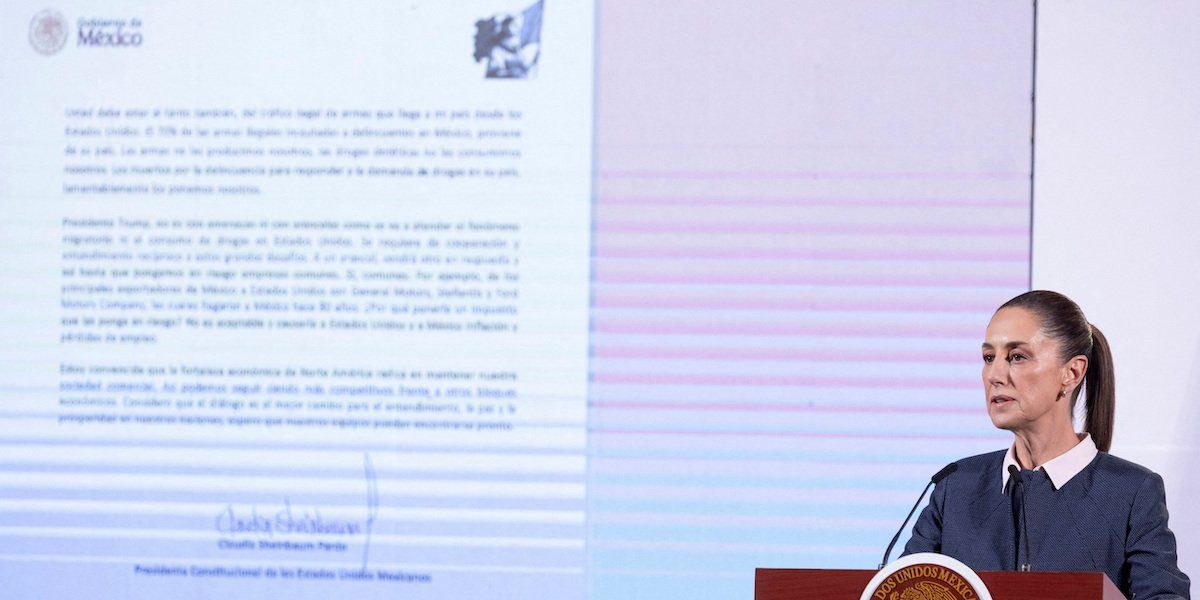Last night, Donald Trump made clear that no country will be immune to his tariff agenda. In a post on Truth Social, he accused Canada and Mexico – America’s top two trading partners – of not doing enough to curb the flow of fentanyl and illegal immigration and threatened them each with 25% tariff hikes. He also vowed to impose an additional 10% tariff on China for its role in producing the precursor chemicals for fentanyl.
The announcement caused Mexico’s peso to slide, suffering a 1.7% drop against the US dollar, and for Canada’s dollar to hit a four-year low, dropping 0.7%.
In a press conference on Tuesday, President Claudia Sheinbaum responded to Trump’s threat by arguing that tariffs would not solve the migration or drug crisis and would come at the cost of the auto industry – noting that cars from America’s biggest auto manufacturers are some of Mexico’s principal exports to the US. Auto stocks fell in response to the post – with General Motors down as much as 7% on Tuesday. Canadian Prime Minister Justin Trudeau hopped on the phone with Trump, seizing the moment to show voters he knows how to handle the incoming US president.
Meanwhile, Chinese stocks remained relatively solid – dropping just 0.2% – likely because the 10% tariff was lower than many investors’ worst expectations.
The US economy was also unphased by the news, with the Nasdaq and S&P 500 both making gains in response to Trump appointing hedge fund manager Scott Bessent as treasury secretary. Bessent is expected to be a steward of the stock market and a moderator of Trump’s wildest economic ambitions.
How likely is Trump to follow through? Eurasia Group US analyst
Noah Daponte-Smith says it’s hard to predict. “What we do know,” he says, “is that Trump is serious about the tariffs and has the legal means to implement them if he wants.” Even if Trump doesn’t implement them on day one, “the
threat of implementation will hang over the USMCA relationship for the entire Trump term if these underlying grievances are not addressed in the manner Trump desires.”
